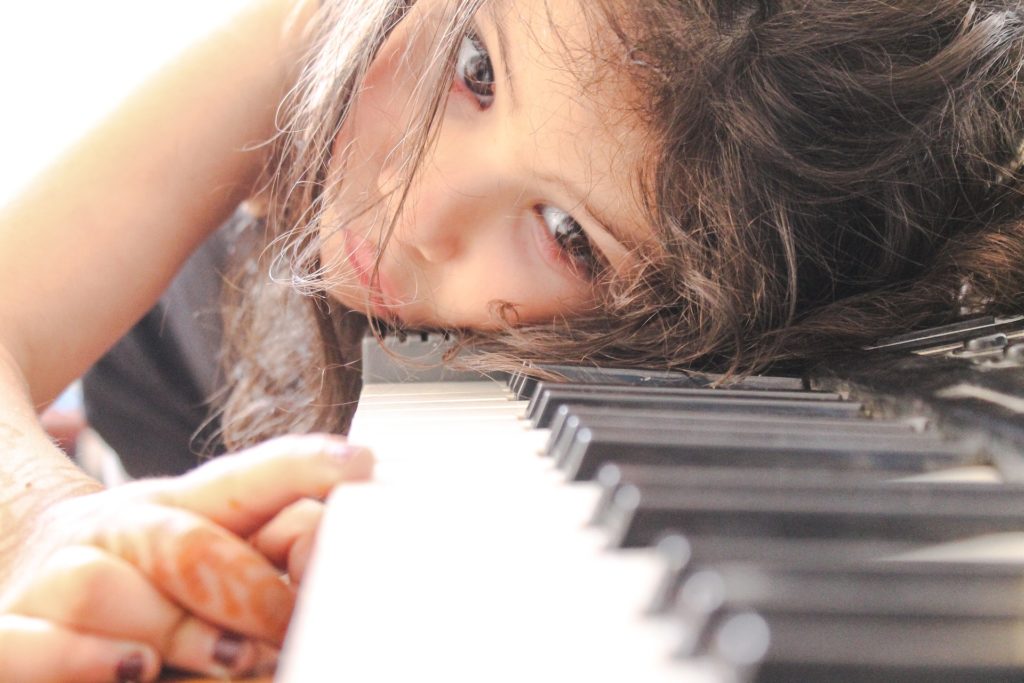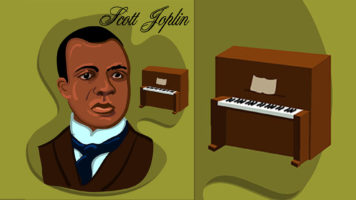
Thirty-some years ago when I was in elementary school, I was what you might call overbooked. Let’s see, there was gymnastics, swim class, math club, cub scouts, church functions, school band, school orchestra, piano lessons, trumpet lessons, homework, and the list goes on.
On one hand, I am surprised I had time to be a kid. Yet, as I think more about it, I realize that I absolutely was a kid just indulging my curious and adventurous nature. I simply took every opportunity to explore the vast array of activities that peaked my interest.
Yet, for whatever I did, I was all-in. My parents never gave me the option to just attend lessons, meetings, or the occasional special event. If I was going to have my name on a list, I had to do the work. I had to practice. I had to study. I had to be involved in whatever way I could.
And, when things got too busy, I had to decide which activity I would no longer continue.
“I know that when I ask my students to practice during the week… I am making a big ask.”
I bring up my childhood because I know I was not the only child to have a busy elementary schedule. Sometimes I feel like my childhood was a vacation compared to that of many of my students today.
I also know that, even as an adult, it can be very hard to commit to being “all-in” even when you happen to have the time. So many things compete for our attention. Some are important, others not at all. But, all become easy distractions.
This is why I know that when I ask my students to practice during the week, however much, I am making a big ask.
“…to learn to play an instrument… it takes that all-in commitment”
Despite rigorous routines, I really believe that being all-in is the only way to truly know if an activity is right for you. I have often made the claim that I believe anyone and everyone can learn to play an instrument. But, it takes that all-in commitment to get to that point.
To this day, I haven’t known anyone to give up on learning a musical instrument who didn’t also admit they rarely practiced. Likewise, I have never had a student make significant advancements without practicing hard. And, it is also safe to say that I have never had a student unable to play an instrument decently after a commitment of at least 2-3 years of lessons and regular practice.
“Students won’t even know if they really like playing an instrument until they…put in some serious practice.”
To sum up it up: practice is the key to success. It matters more than talent or anything else. And, forget being great on a instrument. Students won’t even know if they really like playing an instrument until they have rolled up their sleeves and put in some serious practice.
As my hope is that all students will learn to practice regularly and efficiently, I will be sharing more in the coming weeks about how often students should practice as well as giving valuable tips on how to practice effectively.
New Practice Opportunity!
Update (9/20/19) – This has now evolved into official practice sessions with Mrs. Cline that can be scheduled at much greater variety of times after school daily. Click here to learn more.
I am also pleased to announce an exciting new way that I will be changing things up a bit in my lessons to allow for more practice after school. For the rest of the school year, lessons will remain mostly as they are, but students will now be invited to come 30 minutes before or after their regular lesson time to practice on their instrument or work on a music learning app. If this is successful, I may open up the possibility of students scheduling multiple practice times during the week, similar to what I did last year. More details on this soon!




